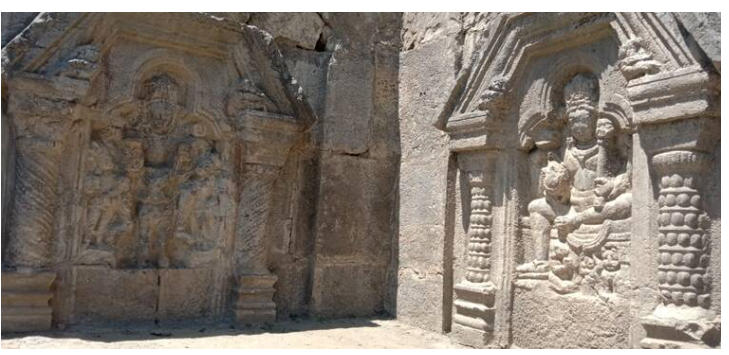Table of Contents
”UPSC Prelims Bits For Today” is every day published in the morning between 11:00 AM to 12:00 Noon and contains selective current affairs articles. ”UPSC Prelims Bits For Today” covers various topics from UPSC Prelims Syllabus and is very helpful and time managing for UPSC Aspirants. The framing of this daily current affairs compilation article is easy to read and understandable also.
In the ”UPSC Prelims Bits For Today” article, we focus on UPSC Preliminary exam-oriented current affairs covering various sections from leading National Newspapers, PIB, and other various official sources.
Paris Agreement for the Ocean
Why in news?
- Negotiations involving 168 countries, including the European Union, to agree on a UN treaty for protecting oceans failed.
- In June, UN Secretary-General Antonio Guterres had declared an “ocean emergency” at the UN Ocean Conference in Lisbon, Portugal, citing threats to the world’s oceans.
About Paris Agreement for the Ocean
- Paris Agreement for the Ocean or UN High Seas Treaty is the treaty to deal with Biodiversity Beyond National Jurisdiction has been under discussion for several years.
- The proposed treaty concerns the ocean existing beyond the Exclusive Economic Zones that lie from the coast of a country to about 200 nautical miles or 370 km into the sea, till where it has special rights for exploration. Waters beyond that are known as open seas or high seas.
- The treaty was to be negotiated under the United Nations Convention on Laws of the Sea (UNCLOS) of 1982 which governs the rights of countries regarding marine resources. As there is no treaty for conserving the health of vast swathes of the earth’s oceans, a UN resolution in 2017 had decided to rectify this while setting 2022 as the deadline.
NALSA
Why in news?
1st First Meeting of the All India District Legal Services Authority, organised by the National Legal Services Authority was inaugurated by the PM.
What is NALSA?
- The National Legal Services Authority (NALSA) has been constituted under the Legal Services Authorities Act, 1987 to provide free Legal Services to the weaker sections of the society.
- It also organizes Lok Adalats for amicable settlement of disputes.
- It monitors and reviews various legal aid programs. It provides rules and principles for legal services under the Act.
- It also distributes funding and grants to state legal services authorities and non-profit organisations to help them execute legal aid systems and initiatives.
- Hon’ble Mr. Justice N. V. Ramana, The Chief Justice of India is the Patron-in-Chief. NALSA is housed at Supreme Court of India.
The Ramon Magsaysay Award
Why in news?
- Former Kerala health minister K K Shailaja has declined her nomination for the 2022 Ramon Magsaysay Award, considered to be Asia’s equivalent to the Nobel Prize.
- Shailaja was considered for the award for her performance as state health minister from 2016 to 2021, a period which saw Kerala fight against the Nipah virus and Covid-19.
About Ramon Magsaysay Award
- In 1957, the Ramon Magsaysay award was set up by trustees of the Rockefeller Brothers Fund and the Philippine government to carry forward Magsaysay’s legacy of service to the people, good governance, and pragmatic idealism.
- In the six decades since 1958 — the first year the Award was given out — over 300 organisations and individuals have been recognised for their developmental endeavours crucial to Asia, and, consequently, to the world.
- The award is given out every year on August 31, on Magsaysay’s birth anniversary.
Indian winners
Vinoba Bhave in 1958, Mother Teresa in 1962, Kamaladevi Chattopadhyay in 1966, Satyajit Ray in 1967, Mahasweta Devi in 1997. In recent years, Arvind Kejriwal (2006), Anshu Gupta of Goonj (2015), human rights activist Bezwada Wilson (2016), and journalist Ravish Kumar (2019) have won the award.
Martand Temple
Brief History of Martand Temple
- The Martand Temple was built by the Karkota dynasty king Lalitaditya Muktapida, who ruled Kashmir from 725 AD to 753 AD.
- Although some historians believe that an earlier temple existed here and was incorporated into Lalitaditya’s grander structure, others credit Lalitaditya entirely for it.
- Lalitaditya built his capital at Parihaspora, the ruins of which also survive to this day.
- Dedicated to Vishnu-Surya, the Martand Temple has three distinct chambers—the mandapa, the garbhagriha, and the antralaya—probably the only three-chambered temple in Kashmir. This points to the position it enjoyed.
- The temple is built in a unique Kashmiri style, though it has definite Gandhar influences.
- A major historical source for Kashmir’s history remains Rajatarangini, written in the 12th century by Kalhana, and various translations of the work contain descriptions of Martand’s grandeur.




 TSPSC Group 1 Question Paper 2024, Downl...
TSPSC Group 1 Question Paper 2024, Downl...
 TSPSC Group 1 Answer key 2024 Out, Downl...
TSPSC Group 1 Answer key 2024 Out, Downl...
 UPSC Prelims 2024 Question Paper, Downlo...
UPSC Prelims 2024 Question Paper, Downlo...




